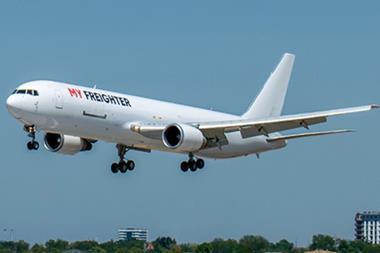
Amazon’s move into logistics should be seen as an opportunity not a threat, according to panellists at the Air Cargo News Conference 2019.
“Some air cargo players are already benefiting from working with Amazon and others are looking at the efficiencies and learning from that – such as how they share data,” said Brendan Sullivan, head of ecommerce and cargo operations. IATA.
Ross Marino, senior vice president – international airport operations, dnata, reminded delegates that similar stories about the death of the air cargo industry had been made when the integrators arrived. “But they became our customers. There is definitely an opportunity here but we have to understand the trends.”
Fatih Cigal, senior vice president, cargo marketing, Turkish Airlines, explained that the basic requirements of e-commerce can be easily met by the airlines. “We have speed, safety, security and reliability, which is what the market needs.”
They all commented on the need for flexibility and responding to customer demands, which required investment and, often, new ways of thinking to ensure transparency and data sharing between all parties in the supply chain.
A focus on digitisation will enable the traditional air freight industry to compete with the integrators for e-commerce traffic, according to Peter Gerber, ceo and chairman of the executive board, Lufthansa Cargo.
“Heavy investment in digitisation throughout the supply chain will allow us to offer integrator quality with lower costs,” he told delegates.
“There is a vast e-ecommerce market and we need to adapt to new customers with new demands: short transport times, smooth customs processes and end to end tracking along with affordable costs, reliable transport and convenient returns.”
He said that the airfreight industry also needed to take a wider perspective to promote free markets and trade. “This should be a top priority on the IATA agenda.”
Another speaker Marco Bloeman, managing director, Seabury Consulting, explained that the average weight of e-commerce shipments was falling as business-to-consumer is increasing more sharply. “This is especially evident in the fourth quarter when we all go shopping for Christmas.”
He said the line between air cargo and parcels/ e-commerce is becoming less defined and that the bigger players like Amazon and Alibaba were blurring the logistics line as well.










